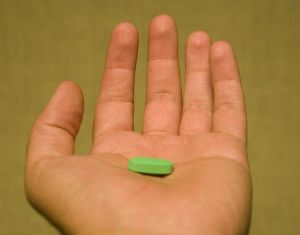Despite ongoing litigation surrounding the diabetes drug Actos, the Japanese drug manufacturer, Takeda Pharmaceutical Co Ltd, seems to be pushing ahead with sales and conducting studies to find new markets for its medication.
 According to a recent article from Reuters, a German study shows Actos may delay the onset of Alzheimer’s related dementia. Though this is an early study, and the drug is not expected to gain approval to treat dementia in the next five years, there has been no mention of whether Actos has the same issues concerning bladder cancers as it does when given to diabetes patients.
According to a recent article from Reuters, a German study shows Actos may delay the onset of Alzheimer’s related dementia. Though this is an early study, and the drug is not expected to gain approval to treat dementia in the next five years, there has been no mention of whether Actos has the same issues concerning bladder cancers as it does when given to diabetes patients.
Our Boston Actos injury lawyer notes in the case of Allen et al. v. Takeda Pharmaceutical Co. Ltd. et al., the plaintiff was awarded $1.5 billion in actual damages and another $9 billion in punitive damages. Takeda is to be responsible for $6 billion of the punitive award and Eli Lilly, which marketed the drug, would be responsible for the remaining $3 billion.
While it is almost a foregone conclusion that the extremely high award will be reduced by the court, the fact remains that a jury concluded that the drug company knew that Actos could cause bladder cancer in humans during the FDA approval phase and withheld the dangerous side effects from the general public when marketing the drug. The drug company is also reported to have destroyed documents that suggested the correlation between Actos and bladder cancer.
The plaintiff has alleged that the bladder cancer has been extremely painful and he is left with the need for ongoing treatment, a high risk of developing new cancers in the future, and said that Actos has essentially ruined his life.
As of now, more than 5,000 lawsuits have been filed against the makers of Actos relating to bladder cancer. There are many more people who may become affected by this debilitating cancer who were only doing what they were told would manage their type 2 diabetes condition.
For the drug company, Actos has been giving them financial windfall sales. It is likely that such high punitive damages were awarded in the lawsuit for that reason. In most lawsuits, the plaintiff is limited to what are considered compensatory damages. Compensatory damages in a negligence suit are financial damages that are needed to compensate an injured party for his or her loss. These can be in the form of pain and suffering, lost wages or earnings, medical bills, future medical bills, and other damages lawyers refer to as “specials.”
On the other hand, punitive damages are designed, as the name implies, to punish the tortfeasor (defendant) for conduct that truly shows a willful and wanton disregard for the safety of others. These damages are over and above actual or compensatory damages and are used to send a message that, if the defendant or anyone else in the defendant’s position acts in such a way again, it will not be tolerated by society.
While punitive damages are the exception rather than the norm, they are sometimes necessary to make a company who makes hundreds of billions each year take patients’ health and well-being more seriously.
If you are the victim of Massachusetts product liability due to the consumption of Actos, call Jeffrey Glassman Injury Lawyers for a free and confidential appointment — (617) 777-7777.
Additional Resources:
German database study hints diabetes drug cuts Alzheimer’s risk, July 11, 2014, Reuters
More Blog Entries:
Actos Litigation Ongoing as Massachusetts Insurer Files lawsuit, July 5, 2014, Boston Actos Injury Lawyer Blog
 Product Liability Lawyer Blog
Product Liability Lawyer Blog

